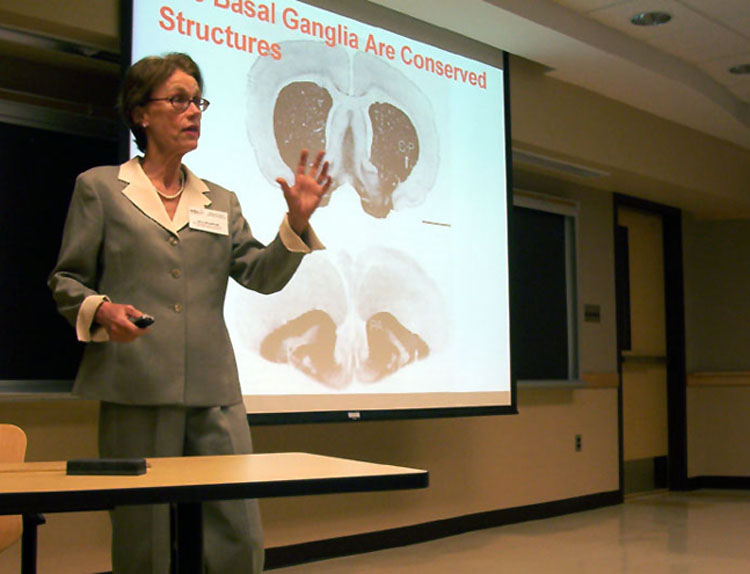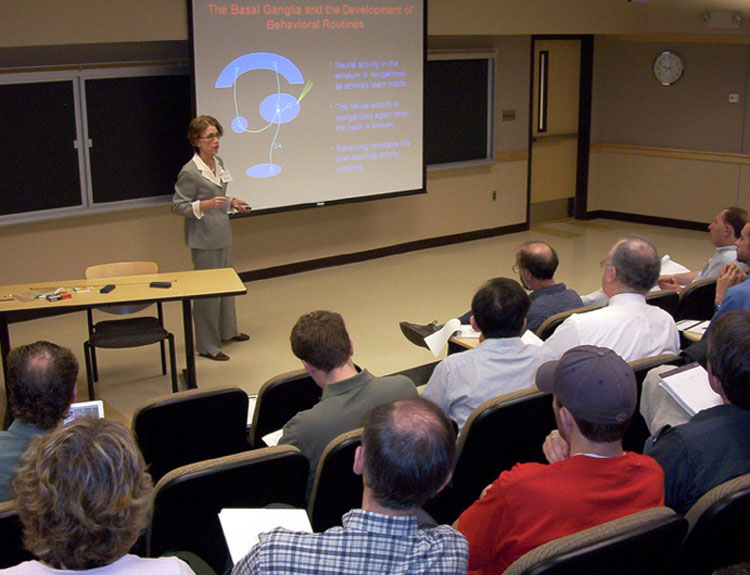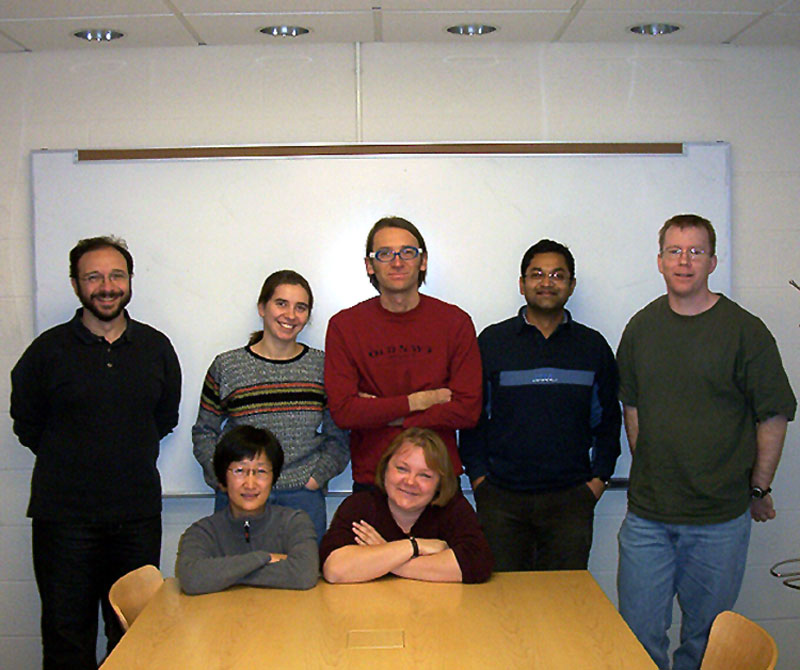
Mathematical Biosciences Institute
by Martin Wechselberger, The Ohio State University
The explosion of research in the life sciences has created the need
for new mathematical theories, statistical methods and computational
algorithms with which to draw knowledge from rapidly accumulating
data. The Mathematical Biosciences
Institute (MBI) catalyzes interactions between the biological,
medical, and mathematical sciences through vigorous programs of
research and education and nurtures a nationwide community of scholars
in this emerging field. The MBI receives major funding from the
National Science Foundation Division of Mathematical Sciences, is
supported by The Ohio State University,
and adheres to the AA/EOE guidelines. Besides the participation of
other institute partners on the university level, the MBI also
encourages involvement from those in private industry. The institute
offers incentives to pharmaceutical and bioengineering companies
interested in becoming a Corporate Member. Current members are Pfizer,
Eli Lilly, and GlaxoSmithKline.
The MBI runs annual emphasis year programs, concentrating on a
broad range of topics in one area of biosciences, with approximately
six 1-week workshops preceded by tutorials. Occasional current topics
workshops introduce mathematical scientists to new opportunities for
research. In the summer, the MBI runs an educational program based on
tutorials and team projects. The topics of the first four years are
the following:
Postdoctoral fellows, long- and short-term visitors, and workshop
participants are invited to take part in the MBI's unique
interdisciplinary programs to help meet the challenges and
opportunities facing mathematical biosciences research today. Most
workshop presentations are video taped and are available via the web
as
lecture
materials giving researchers around the globe the opportunity to
benefit from the MBI activities.
 |
 |
| Pictures taken at Workshop 6,
Sensory Motor System, of the emphasis year 2002-2003 on Mathematical
Neurosciences. The speaker shown is Ann Graybiel
(MIT) |
The interdisciplinary character of the MBI is well reflected in the
Ph.D. programs of the ten current postdoctoral fellows who obtained
their degrees from Departments of Mathematics, Pharamcology,
Entomology, Statistics, and Physics. Furthermore all postdocs are
provided with two mentors, one from the mathematical and statistical
sciences, and another from one of the biosciences departments at The
Ohio State University. Long-term visitors may also serve as mentors,
thus giving the young researchers a great environment to find
collaborators in this emerging research field.
 |
Postdocs at MBI
From left to right: (front) Yixin Guo, Katarzyna Rejniak,
(back) Gheorghe Craciun, Alla Borisyuk, Martin Wechselberger,
Pranay Goel, Daniel Dougherty |
More than 500 participants attending the first year program on
Mathematical Neurosciences at the MBI is evidence of the success of
this interdisciplinary program under director Avner Friedman. It
should be mentioned that dynamical systems theory was a key tool in
approaching problems in this first year on the neurosciences. This
should encourage mathematicians to carry this appoach into other
fields of the biosciences where these tools are not yet established.
The biosciences are the "physics of the 21st century."